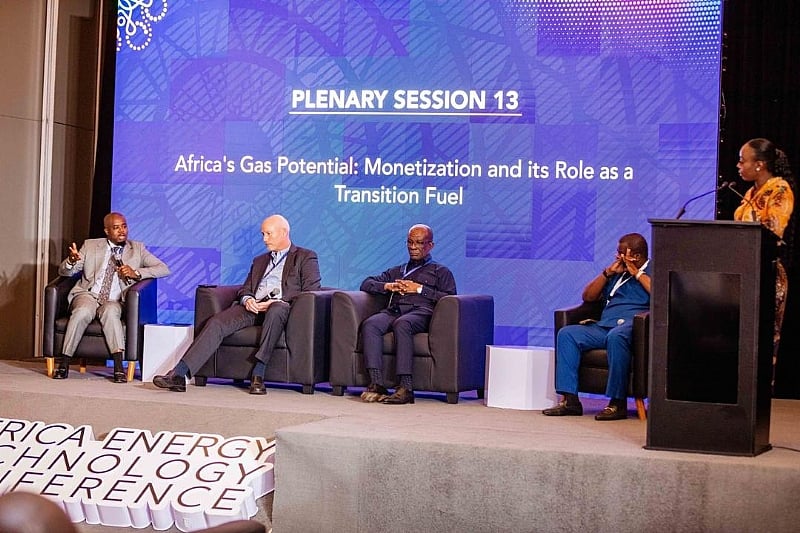Africa’s Gas Potential: A Catalyst for Economic Transformation and Climate Resilience
The 2025 Africa Energy Technology Conference in Accra served as a platform for prominent figures in the energy sector to discuss the continent’s vast gas potential and its role in driving economic growth and climate resilience. Mr. Godwin Kudzo Tameklo, CEO of the National Petroleum Authority (NPA) of Ghana, delivered a compelling address, emphasizing the urgency for Africa to take control of its energy future by harnessing its abundant gas reserves. He highlighted the stark reality of 600 million Africans lacking access to electricity, framing this not as a mere energy deficit, but as a strategic opportunity to leverage natural gas for power generation. Mr. Tameklo urged African governments and investors to proactively present this opportunity to the global investment community, positioning the gas sector as a major driver of job creation and economic transformation.
Mr. Tameklo’s perspective was further reinforced by a panel of distinguished energy leaders, including Mr. David Pappoe Jnr, President of the African Energy Chamber (Ghana); Mr. Appiah Keyi, Director of Commercial and New Ventures at Kosmos Energy; and Mr. Peter Stuttaford, CEO of Thompson Energy B.V. Their collective expertise and insights underscored the transformative potential of natural gas for Africa. The conference theme, “Africa’s Gas Potential: Monetization and Its Role as a Transition Fuel,” captured the essence of the discussions, recognizing gas as a crucial bridge fuel in the journey towards a cleaner energy future.
Ghana’s Gas Revolution: A Model for Africa
Ghana’s experience with its second gas processing plant (GPP 2) exemplifies the transformative power of natural gas. Mr. Tameklo lauded GPP 2 as a "game changer," poised to satisfy over 40% of the nation’s domestic gas requirements. This achievement not only reduces Ghana’s reliance on imported gas but also fuels industrial expansion, lowers energy costs, and supports the government’s ambitious 24-hour economy initiative. By ensuring a reliable and affordable supply of gas, Ghana aims to stimulate economic growth, create employment opportunities, and improve living standards for its citizens.
Mr. Tameklo underscored the critical link between energy security and Ghana’s development agenda, emphasizing that affordable and reliable gas is fundamental to achieving inclusive growth and long-term sustainability. The availability of readily accessible and cost-effective energy empowers businesses to thrive, creates jobs, and enhances overall economic productivity. This, in turn, contributes to poverty reduction and improved quality of life.
Navigating Challenges and Ensuring Equitable Access
While advocating for the expansion of gas utilization, Mr. Tameklo acknowledged the challenges associated with implementing the Cylinder Recirculation Model (CRM) in Ghana. This initiative, designed to improve the safety and accessibility of liquefied petroleum gas (LPG), has faced resistance from some segments of the population. Mr. Tameklo reiterated the NPA’s commitment to refining the CRM, taking into account public concerns while maintaining focus on safety, accessibility, and job creation. The NPA is actively working to address these concerns and ensure a smooth transition to a safer and more efficient LPG distribution system.
Recognizing the importance of robust regulatory oversight, Mr. Tameklo highlighted the NPA’s efforts to strengthen its gas department. This strengthened capacity will enable the NPA to effectively oversee the implementation of gas projects, ensuring compliance with safety standards and promoting wider access to cleaner cooking alternatives. The goal is to extend the benefits of cleaner and safer cooking fuels to a larger portion of the population, contributing to improved public health and environmental sustainability.
Financing Africa’s Energy Transition and Empowering Local Communities
Mr. Tameklo proposed an innovative approach to financing Africa’s energy transition, suggesting the utilization of Ghana’s Heritage Fund to de-risk gas infrastructure projects and attract international investment. This strategic use of the Heritage Fund would create a more favorable investment climate, incentivizing private sector participation and accelerating the development of critical gas infrastructure. He cited the success of Genser Energy’s local gas projects as a testament to the viability and community-enhancing potential of such ventures.
These projects demonstrate the positive impact that locally-focused gas initiatives can have on communities, creating jobs, stimulating economic activity, and improving access to essential resources. By fostering local ownership and participation, these projects contribute to sustainable development and empower communities to benefit directly from the development of their natural gas resources. This approach underscores the importance of ensuring that the benefits of energy development are shared equitably and contribute to the overall well-being of local communities.














